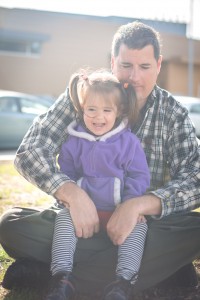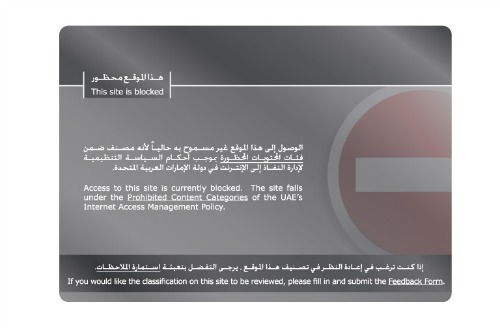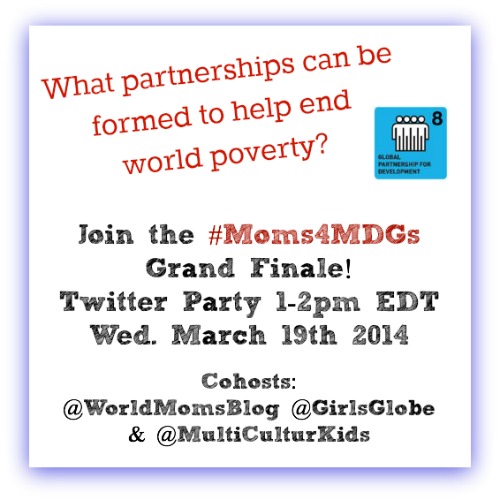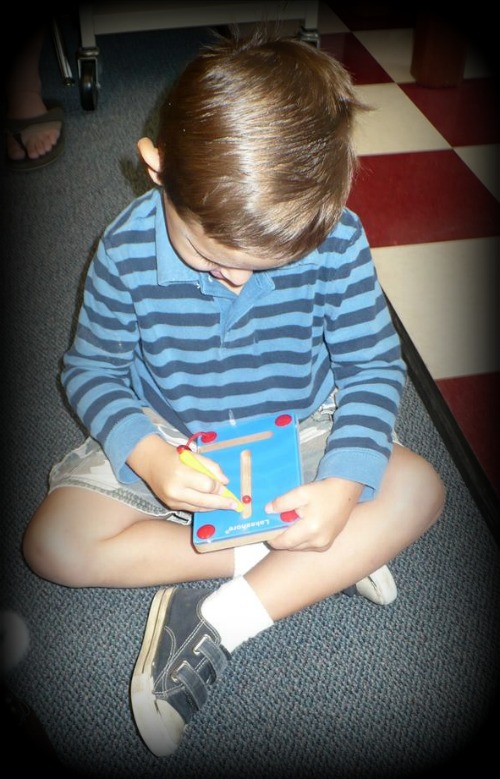
by Ewa Samples | Mar 21, 2014 | 2014, Being Thankful, Child Care, Childhood, Family, Girls, Home, Inspirational, Kids, Life Balance, Life Lesson, Me-Time, Motherhood, Music, Parenting, Polish Mom Photographer, Teenagers, USA, Working Mother, World Motherhood, Younger Children
 All parents agree, once their first child came into their lives, everything changed. Our life routine changed, some of our friends changed, our clean house no longer stayed clean, the term “empty laundry basket” became an abstract thing, our plans for the future changed…even some of our dreams. We no longer sleep, we no longer eat, we no longer have the time to take care of ourselves as much as we wish. Eating at a dining table is a privilege, at least in my house, because most of my meals are consumed on the run, and my kids are not even in school yet!
All parents agree, once their first child came into their lives, everything changed. Our life routine changed, some of our friends changed, our clean house no longer stayed clean, the term “empty laundry basket” became an abstract thing, our plans for the future changed…even some of our dreams. We no longer sleep, we no longer eat, we no longer have the time to take care of ourselves as much as we wish. Eating at a dining table is a privilege, at least in my house, because most of my meals are consumed on the run, and my kids are not even in school yet!
I go to mom’s groups, family gatherings, coffee with friends, and I hear the same thing over, and over again: “It will all pass faster than you expect, and you’ll become free again.” No more dirty diapers, no more wiping floors and ceilings after each meal, no more sleepless nights, no more this, and no more that…
And I’m thinking, is it really all that bad…having young children around? Is it really that hard? Yes, it is hard, but it will become harder. Sleepless nights, because the baby is hungry, or because she needs a new diaper will change to sleepless nights because my daughters are out on a date, or on a road trip across the country, and I’m left with all the visions in my head about what may go wrong out there. (more…)
Ewa was born, and raised in Poland. She graduated University with a master's degree in Mass-Media Education. This daring mom hitchhiked from Berlin, Germany through Switzerland and France to Barcelona, Spain and back again!
She left Poland to become an Au Pair in California and looked after twins of gay parents for almost 2 years. There, she met her future husband through Couch Surfing, an international non-profit network that connects travelers with locals.
Today she enjoys her life one picture at a time. She runs a photography business in sunny California and document her daughters life one picture at a time.
You can find this artistic mom on her blog, Ewa Samples Photography, on Twitter @EwaSamples or on Facebook!
More Posts - Website
Follow Me:





by Patricia Cuyugan (Philippines) | Mar 20, 2014 | 2014, Motherhood, Philippines, Stress, World Motherhood
 Today, for the first time in a long time, I said no to a work project. See, last year was difficult for our family, with my husband being out of work for some months. I had to assume the role of breadwinner while still functioning as mommy, wife, and woman. I know a lot of you know how that feels. I knew that I wasn’t completely alone, though, and that my husband was always around, ready to help. But that didn’t stop me from feeling the pressure that came with bills, tuition and car payments and other expenses that came knocking on my door each month.
Today, for the first time in a long time, I said no to a work project. See, last year was difficult for our family, with my husband being out of work for some months. I had to assume the role of breadwinner while still functioning as mommy, wife, and woman. I know a lot of you know how that feels. I knew that I wasn’t completely alone, though, and that my husband was always around, ready to help. But that didn’t stop me from feeling the pressure that came with bills, tuition and car payments and other expenses that came knocking on my door each month.
I accepted every work opportunity that came my way, and turned over a lot of my home responsibilities to my husband. For a while, the pressure caused me to forget how it was to live. It made me lose sight of what I had set as my purpose a couple of years ago when I chose to work from home – to focus on my family. The stress that I was putting on myself made me cranky and moody. It also caused me to doubt my abilities and question if what I was doing was right. Worst of all, it nearly made me lose faith that things would work out.
Life was, basically, not nice, and it took a lot for optimistic me to see the sweet side of every day. But, as life teaches us, there is always a rainbow after the rain, and the sun always rises after a long dark night. And today, as I said no to that project, I felt the sun shine down on me, and saw that beautiful colorful rainbow. I’m glad that I am now out of that funk.
This post may just be simple, short and sweet, but it goes out to each one of you. I want to remind you today to love yourself, and that means making time for yourself amidst all the chaos that you might be facing. I want for each of you to stop and cherish the moment you are in right now, to hug your husband and inhale his scent, to play with your child and take in all the giggles.
We all have our long days, long weeks, in my case, one long year, and all it takes is a few seconds in the middle of all that to stop and remember what you really are living for. Remember your purpose, and live it out. And before you know it, you’ll begin to feel the warm sun shine down on you, too.
How easy or difficult is it for you to say ‘No’ to something?
This is an original post by our contributor Mrs. P. Cuyugan from Philippines. Photo credit to the author.
Patricia Cuyugan is a wife, mom, cat momma, and a hands-on homemaker from Manila, whose greatest achievement is her pork adobo. She has been writing about parenting for about as long as she’s been a parent, which is just a little over a decade. When she’s not writing, you can usually find her reading a book, binge-watching a K-drama series, or folding laundry. She really should be writing, though! Follow her homemaking adventures on Instagram at @patriciacuyugs.
More Posts
Follow Me:




by Mannahattamamma (UAE) | Mar 19, 2014 | 2014, Computers, Cultural Differences, Culture, Education, Expat Life, Government, Homeschooling, Living Abroad, Multicultural, Older Children, Politics, Religion, School, Social Media, Traditions, UAE, USA
 I always swore I would never home-school my children. I know many people do, and do it quite successfully, but I’m awfully fond of the quiet that descends on my house after they’ve tromped off to school. If that tromping were only happening from the bedroom to, say, the kitchen table, I think I might simply lock myself in the bathroom and never come out.
I always swore I would never home-school my children. I know many people do, and do it quite successfully, but I’m awfully fond of the quiet that descends on my house after they’ve tromped off to school. If that tromping were only happening from the bedroom to, say, the kitchen table, I think I might simply lock myself in the bathroom and never come out.
But as so often happens, my vow has collided with reality and I have found myself, in recent weeks, trolling home-schooling websites in search of teaching resources. My kids are now 9 (nine and a half, he would say indignantly) and 13; they go to a British school here in Abu Dhabi. That means they’ve spent a lot of time learning various English kings and queens, although they can’t recite them all in order. They study “maths,” and do prep rather than homework; they study English history and geography; they read mostly English writers in their literature classes. In addition to all those Anglo studies, they take Arabic language classes four days a week and once-weekly class called “Islamic Studies.” The Arabic classes are mandated by ADEC (Abu Dhabi Education Council) and I have to say, I’m much more interested in my kids learning Arabic than I am in their ability to name all the English kings and queens.
Having the boys be in an English system has been a learning curve for all of us. We’re learning two languages, actually, Arabic and, well, English: the boys now live in a world where things are “grey,” luggage goes in the “boot,” and we put garbage in the “bin.”
I’m not considering a dabble in the home-schooling system in order to beef up my boys’ appreciation of the Queen’s English, however. My kids, like every schoolchild in the country, have a curriculum that is at least in part determined by the UAE government, and that means there are things that aren’t supposed to be taught. I live in a place where censorship happens and where, unlike the States, the policies cannot be overtly challenged in the courts. So, for instance, in the States if you live in a town where they want to ban the Harry Potter books, you can take the school district to court. Not here.
We had to sign a permission slip so that our older son could get the science textbook that included the chapter on reproduction (with pictures of, you know, the embarrassing bits); his Latin class translates vinum as … grape, not wine. These are relatively small annoyances, although of course they are far from ideal.
There are, however, more serious concerns in terms of what shouldn’t be included in history courses and literature courses, and that’s where I find myself trolling the home-schooling sites for resources. The Holocaust can’t be taught here; Israel and Judaism are not supposed to be mentioned here; communism isn’t supposed to be discussed; evolution isn’t supposed to be taught; and the list goes on. Sometimes it feels as if we’re living in some kind of Bible-thumping town in the rural U.S and I realize, yet again, that fundamentalism can be seen as a global phenomenon that differs only in the nature of its prohibitions: the fear that motivates the prohibitions stays constant.
Before you leap to any conclusions, please know that the Muslim families I know are as frustrated by these government-issued edicts as are the non-Muslim families and many of us have talked together about what we can do to help our children gain a full picture of the world, regardless of what the government says. So it is that what in some contexts (living in Manhattan, for instance) would be a purely theoretical discussion has become in our household, a very pragmatic series of conversations.
Think about it: how would you talk to your kids about censorship? Is censorship always bad? Think about your children, if you have them, and the internet: are there sites you say they can’t see, or have you put a filter or something on your computer to prevent certain kinds of access? Do we agree that there is such a thing as “good” censorship? (Because of that whole teenage-boy-surfing-the-internet thing, I see a (slight) upside to living in a “nanny state.” I am fairly sure that if he wanted to look, my son wouldn’t be able to find basic porn–not to say that if he really wanted to dig around he couldn’t elude the censors, but at this point, I think his porn-directed vocabulary is still too limited to get around the government blocks. I guess we file that under “thank goodness for small favors,” right? )
My husband and I are both professors, and so we are able to bolster and supplement what isn’t happening in school, but we are also having a lot of conversations with our kids about censorship, politics, and the necessity of thinking about things in ways that are different from how we might think about them. We point out that the UAE isn’t Saudi Arabia; there is no Taliban here; the country is not governed by a theocracy of any sort. We know Jewish families who live here; I know gay couples who live here; a Mormon family lives next door to us. I see people on the beach in the scantiest of scanty bathing suits.
Living here means coming to term with nuance, with ambiguity, with living in a world that is organized around “both/and,” rather than “either/or.” The country is progressive and conservative; censorship is a problem that has a context; learning happens as much from what is not there as it does from what is there. It’s complicated and let’s be honest — no nine year old, no thirteen year old—and very few adults—really likes ambiguity. After all, if there is no “in-between” answer, life becomes much easier, doesn’t it?
No, of course I’m not happy that my kids have a biology textbook with the word “pig” marked out. Of course, I’m also not pleased that the Anglo-centric curriculum also neglects things like the US Civil War, other than in the most general sense. But I will say that I think it is, and will continue to be, a powerful learning experience for my children (and us) to have to confront and think about what it means to live in a place where the government attempts to exert such extensive control. I like to think that, paradoxically, these attempts at censorship will make my children more open-minded adults.
Have you ever been confronted with censorship? How have you dealt with it?
After twenty-plus years in Manhattan, Deborah Quinn and her family moved to Abu Dhabi (in the United Arab Emirates), where she spends a great deal of time driving her sons back and forth to soccer practice. She writes about travel, politics, feminism, education, and the absurdities of living in a place where temperatures regularly go above 110F.
Deborah can also be found on her blog, Mannahattamamma.
More Posts
Follow Me:


by Jennifer Burden | Mar 18, 2014 | 2014, Social Good, World Voice
 The 8 month #Moms4MDGs campaign comes to an end this month, when World Moms Blog, along with partners, Girls Globe and Multicultural Kid Blogs will focus on the UN’s 8th goal to help eradicate extreme poverty, creating global partnerships for development (MDG8). And what foundation best to highlight when it comes to MDG8? The GAVI Alliance based in Geneva, Switzerland.
The 8 month #Moms4MDGs campaign comes to an end this month, when World Moms Blog, along with partners, Girls Globe and Multicultural Kid Blogs will focus on the UN’s 8th goal to help eradicate extreme poverty, creating global partnerships for development (MDG8). And what foundation best to highlight when it comes to MDG8? The GAVI Alliance based in Geneva, Switzerland.
Why GAVI for MDG 8?
The GAVI Alliance is a partnership that includes The Bill and Melinda Gates Foundation, the World Health Organization, UNICEF and the World Bank that works globally to help save the lives of children through life-saving vaccines.
“By bringing the key stakeholders in global immunisation together around one mission, GAVI combines the technical expertise of the development community with the business know-how of the private sector.” – See more at: http://www.gavialliance.org/about/partners/the-partnership-model/#sthash.ZV6Lfv9l.dpuf
GAVI’s mission is: “Saving children’s lives and protecting people’s health by increasing access to immunisation in poor countries.”
Helena Chan at the GAVI Alliance was one of the first people we met in the world of social good at the 2011 Social Good Summit in NYC. She has been a friendly and knowledgable counterpart throughout the years. World Moms Blog’s advocacy and content has grown substantially since 2011, and it is momentous to feature one of the first organizations we have advocated for.
World Voice Editor, Elizabeth Atalay, is published on the GAVI Alliance blog today for the #Moms4MDGs campaign for MDG8, global partnerships for development. She shares her own mother’s bout with polio, a disease that Elizabeth wishes to see eradicated in her lifetime.
Please Join the Final #Moms4MDGs Twitter Party on Wednesday!
And we cordially invite you to attend the final #Moms4MDGs Twitter Party of the 8 month campaign on Wednesday, March 19th from 1-2pm EDT.
Not in the EDT timezone? Here’s a time calculator to get your local party time!
We’d also like to extend a big Thank YOU to all the organizations, moms and people around the globe who joined in the #Moms4MDGs twitter chats over the last 8 months. Thank you so much for being there. And, especially, to our really fantastic cohosts recruited along the way, Girls Globe and Multicultural Kid Blogs — thank you so much for making #Moms4MDGs even better and here’s to many more social media partnerships in the future!
What’s next after #Moms4MDGs for World Moms Blog?
World Mom and Senior Editor, Purnima Ramakrishnan of India, will head to Brazil next in April and continue World Moms Blog’s coverage of the MDGs through an International Reporting Project Fellowship. Even though the 8 month, 8 MDG campaign has ended, we will still continue to advocate for the eradication of world poverty beyond 2015 into the new 2030 goals. #2030NOW Stay along for the journey!
And now, please do click on over to GAVI’s blog to read World Mom, Elizabeth Atalay’s, amazing post there!
Jennifer Burden, Founder, World Moms Blog
You can now read the last 7 posts of the #Moms4MDGs campaign to catch up!

Jennifer Burden is the Founder and CEO of World Moms Network, an award winning website on global motherhood, culture, human rights and social good. World Moms Network writes from over 30 countries, has over 70 contributors and was listed by Forbes as one of the “Best 100 Websites for Women”, named a “must read” by The New York Times, and was recommended by The Times of India.
She was also invited to Uganda to view UNICEF’s family health programs with Shot@Life and was previously named a “Global Influencer Fellow” and “Social Media Fellow” by the UN Foundation. Jennifer was invited to the White House twice, including as a nominated "Changemaker" for the State of the World Women Summit. She also participated in the One Campaign’s first AYA Summit on the topic of women and girl empowerment and organized and spoke on an international panel at the World Bank in Washington, DC on the importance of a universal education for all girls. Her writing has been featured by Baby Center, Huffington Post, ONE.org, the UN Foundation’s Shot@Life, and The Gates Foundation’s “Impatient Optimists.” She is currently a candidate in Columbia University's School of International and Public Affairs in the Executive Masters of Public Affairs program, where she hopes to further her study of global policies affecting women and girls.
Jennifer can be found on Twitter @JenniferBurden.
More Posts - Website
Follow Me:


by Sophie Walker (UK) | Mar 17, 2014 | 2014, Being Thankful, Childhood, Education, Girls, Kids, Life Lesson, Motherhood, Parenting, Preschool, Sophie Walker, Special Needs, UK, Uncategorized, World Motherhood, Younger Children
 Betty and I are walking to school in the rain. It is a miserable morning – grey, cold and squally. We are tilting our umbrellas sideways to shield ourselves from the gusts of needles thrown at us as we progress along the avenue. I am forcing bright chatter and thinking of the warm cup of tea I will have when I get home.
Betty and I are walking to school in the rain. It is a miserable morning – grey, cold and squally. We are tilting our umbrellas sideways to shield ourselves from the gusts of needles thrown at us as we progress along the avenue. I am forcing bright chatter and thinking of the warm cup of tea I will have when I get home.
Betty’s umbrella is white and pink and round like a daisy. It has pretty little petals and yellow stripes, and a bumble-bee attached to the top. The bumble-bee is looking very sorry for himself this morning, buffeted hither and to. I can’t see Betty’s face but I can tell by the drag of her toes that she is feeling sorry for herself too.
I lean down and enquire: “How are you doing, darling?”
A woebegone voice answers. “Ok.”
Then she asks: “Mummy, did this umbrella used to belong to my big sister?”
I tell her yes, it did.
“And Mummy, did she used to walk to school with it too?”
Again, I aver, she did.
A pause. Then, cautiously: “Mummy, did my sister ever used to not want to go to school?”
I can see where this is going now and I give her hand a sympathetic little squeeze. I say yes, there were days when her big sister didn’t really feel like it either.
At this Betty stops and tips back the rim of her umbrella to look up at me. Her eyes are welling with tears. She asks: “And did she used to worry about making mistakes too?”
Betty started school last September at the age of four. She is now four and a half and a month into her second term. She flew through the first twelve weeks with ease – enthusiastic, inquisitive, and keen to try new things. This term, she has cried often on leaving me in the mornings. Afternoons start with jubilation at being home, then slide slowly from relaxation to upset as night approaches.
As soon as I call her for her bath it is her cue to start an hour-long conversation about whether or not she will have to go to school again in the morning.
Now I look at her, looking up at me, her face a mixture of rain and tears, and I think: She’s far too little for all this. I bend down to her and put my umbrella down and hug her. I tell her: “Everyone makes mistakes. It doesn’t matter about making mistakes. The thing is just to try your best. Have a little go.”
But as I’m saying it, I’m thinking that really, I just want to put her in my pocket and take her home. She is not yet five. She shouldn’t be afraid of new things in case she finds herself unable to do them to a standard that will make her happy.
Last term, she learned phonics – how to make the sounds of the alphabet. This term, she has realised that those phonics are letters and that by putting them together and sounding them out she can both read and write. And it terrifies her.
It is Learning with a capital ‘L’. Every day now she wonders what Learning she will have to conquer next.
The British education system is under huge scrutiny at the moment. The coalition government’s Conservative education minister Michael Gove has decided that it needs an overhaul. There is too much emphasis on coursework, so he has decreed the system should revert to a grand slam of end-of-year exams. There is not enough emphasis on rote learning, so reciting dates and times-tables are back in.
So far I have reacted to Gove’s decisions with horror mainly because of the impact they will likely have on my elder daughter, who has Asperger’s Syndrome, and will struggle even more under a system that removes the chance for her to shine via project work. Gove’s reforms are a disaster for Grace.
Now, looking at Betty, who I had expected to skip through the system, I find myself wondering how she will cope. Recently Gove said he was thinking of introducing formal assessments for four and five-year-olds when they enter school in England, in order to be able to monitor their progress.
I care that my children should progress well through the education system, and flourish in their chosen careers. But as I kissed Betty goodbye in her classroom that morning, and watched her teacher take her gently by the hand to distract her from her upset, I thought: there must be a better way to do this.
So – how do you do it, where you live? And do you think it works?
This is an original post to World Moms Blog from our writer in England, Sophie Walker.
The picture used in this post is credited to Roger McCallum. It holds a Flickr Creative Commons attribution license.

Writer, mother, runner: Sophie works for an international news agency and has written about economics, politics, trade, war, diplomacy and finance from datelines as diverse as Paris, Washington, Hong Kong, Kabul, Baghdad and Islamabad. She now lives in London with her husband, two daughters and two step-sons.
Sophie's elder daughter Grace was diagnosed with Asperger Syndrome several years ago. Grace is a bright, artistic girl who nonetheless struggles to fit into a world she often finds hard to understand. Sophie and Grace have come across great kindness but more often been shocked by how little people know and understand about autism and by how difficult it is to get Grace the help she needs.
Sophie writes about Grace’s daily challenges, and those of the grueling training regimes she sets herself to run long-distance events in order to raise awareness and funds for Britain’s National Autistic Society so that Grace and children like her can blossom. Her book "Grace Under Pressure: Going The Distance as an Asperger's Mum" was published by Little, Brown (Piatkus) in 2012. Her blog is called Grace Under Pressure.
More Posts

by Maman Aya (USA) | Mar 14, 2014 | 2014, Awareness, Communication, Education, Kids, Milestones, Motherhood, Parenting, Preschool, Special Needs, USA, World Motherhood, Younger Children
 My son is eight months old and clearly utters his first word, and quickly starts to add more words into his daily speech and quickly starts to put them together to form ‘sentences’…in multiple languages! At 9 months old I start to potty train him, and he understands what I am trying to teach him.
My son is eight months old and clearly utters his first word, and quickly starts to add more words into his daily speech and quickly starts to put them together to form ‘sentences’…in multiple languages! At 9 months old I start to potty train him, and he understands what I am trying to teach him.
‘This child is brilliant’, all the adults in his life agree.
My son is about a year and a half. He goes to play at a nearby kids gym which has an area to climb and slide, a Lego area, an area to jump, balls, puzzles, magnets and blocks, etc. So many fun things for a toddler to do. Most kids are so excited. They run in and start playing with all of the toys. But not my son. He walks in and stands off to the side to observe the other children and watch what they do. To understand what is expected, I suppose. Once he understands what the other kids are all doing and how he is expected to behave and play with them, he joins the fun – and he has a blast – never wanting to leave.
When he is 18 months – 3 years old he takes ‘mommy and me’ classes on subjects he enjoys, like construction, art, French, music and cooking. He is tentative and does not participate straight away. It takes some time for him to warm up and I (or my mother, who is his daytime caretaker while I am at work) have to do most of the activity for him until about 10 minutes before the end of the 40 minute classes, week after week.
He is almost 3 and has started ‘school’, a few times a week, 3 hours at a time. The teachers comment that he would rather talk with them (and his vocabulary is amazing for a 3 year old – he started talking at 8 months after all), than play with his friends. He watches his friends and directs them (tells them if they are breaking a rule, or shows them how to do something), but does not easily go and play with them. He is more like one of the teachers than one of the 2 or 3 year-olds. I also notice that he doesn’t recognize, or confuses his letters (like mixing M and W), like other 3 year-olds.
This trend continues, although he does get better at socializing. He does get better at playing with other children, but only because he mimics their actions (good or bad). He doesn’t realize when an action is” not good”, because someone else did it before him, so it must be okay.
At 4 years old he starts having tics. His pediatrician tells me it’s normal for boys, there is nothing wrong with him. I take him to an eye doctor (one of his tics involves rolling his eyes), and he does need glasses, but the opthalmologist tells me that the tics are normal. I take him to a neurologist, who tells me nothing is wrong with him. Over the years I continue to express my concerns to the pediatrician. We realize that the tics are caused when he is stressed or excited.
“Nothing wrong,” says the doctor. This is not very reassuring.
I speak to his teachers over the years who assure me he is incredibly bright. He is mature. His vocabulary and speech are well ahead of his age, yes he is still mixing up letters, but the teachers assure me that it is within a normal range. He is indeed a very special child, teacher after teacher says.
But all of the reassurances in the world do not stop me from thinking that my son is different.
I watch to see if the other kids shun him…. they don’t seem to, but he is not choosing the friends that I would like him to have. That is to say, the nicer, gentler boys. I am afraid that he may be choosing the rowdier friends because he is over compensating. He is trying to fit in.
Fast forward to this past September. He started first grade as a normal 6 year-old. He was given a reading assessment (as were all of his classmates) and no red flags. About two months into the school year his teacher noticed that he was not doing as well as she would like, so she had him assessed even further. This time there were warnings. He is having problems reading (which I had asked his teachers about previously). He starts to spend one-on-one time with the reading specialist in his school and he has been making some progress, but there is some concern. I mention to the reading specialist that personally, I believe he may be dyslexic. She agrees that he does in fact have a “reading disability” (apparently dyslexia falls under that category these days), but that she is not qualified to be able to properly diagnose him.
That conversation was a few weeks ago. I feel relieved and worried. We have to keep working the system visiting specialist after specialist until I get an actual diagnosis. I don’t want to frighten him by taking him to see these specialists, but I do want to get an understanding of what I should do. And once I get a diagnosis, what should I do with it? How can this affect the rest of his learning, his education, and ultimately his life? What if the other kids make fun of him or shun him? How is this the same child who scored in the 90th + percentile on his kindergarten entrance exam on vocabulary, conversation and comprehension? (Yes they actually administer this test in NYC.) What if we decide to move, and have to change his school…will he have the help he needs to succeed? I have so many unanswered questions, and feel overwhelmed and not sure where to start…
Does you child have a learning disability? How did you find out? How have you helped your child learn to cope?
This is an original post to World Moms Blog by Maman Aya and was inspired by fellow WMB contributor Sophie Walker’s post, The Book I Never Thought I would Write.
Photo credit to Lesley Show. This photo has a creative commons attribute license.

Maman Aya is a full-time working mother of 2 beautiful children, a son who is 6 and a daughter who is two. She is raising her children in the high-pressure city of New York within a bilingual and multi-religious home.
Aya was born in Canada to a French mother who then swiftly whisked her away to NYC, where she grew up and spent most of her life. She was raised following Jewish traditions and married an Irish Catholic American who doesn’t speak any other language (which did not go over too well with her mother), but who is learning French through his children. Aya enjoys her job but feels “mommy guilt” while at work. She is lucky to have the flexibility to work from home on Thursdays and recently decided to change her schedule to have “mommy Fridays”, but still feels torn about her time away from her babies. Maman Aya is not a writer by any stretch of the imagination, but has been drawn in by the mothers who write for World Moms Blog. She looks forward to joining the team and trying her hand at writing!
More Posts

 All parents agree, once their first child came into their lives, everything changed. Our life routine changed, some of our friends changed, our clean house no longer stayed clean, the term “empty laundry basket” became an abstract thing, our plans for the future changed…even some of our dreams. We no longer sleep, we no longer eat, we no longer have the time to take care of ourselves as much as we wish. Eating at a dining table is a privilege, at least in my house, because most of my meals are consumed on the run, and my kids are not even in school yet!
All parents agree, once their first child came into their lives, everything changed. Our life routine changed, some of our friends changed, our clean house no longer stayed clean, the term “empty laundry basket” became an abstract thing, our plans for the future changed…even some of our dreams. We no longer sleep, we no longer eat, we no longer have the time to take care of ourselves as much as we wish. Eating at a dining table is a privilege, at least in my house, because most of my meals are consumed on the run, and my kids are not even in school yet!










 The
The 


 My son is eight months old and clearly utters his first word, and quickly starts to add more words into his daily speech and quickly starts to put them together to form ‘sentences’…in multiple languages! At 9 months old I start to potty train him, and he understands what I am trying to teach him.
My son is eight months old and clearly utters his first word, and quickly starts to add more words into his daily speech and quickly starts to put them together to form ‘sentences’…in multiple languages! At 9 months old I start to potty train him, and he understands what I am trying to teach him.


